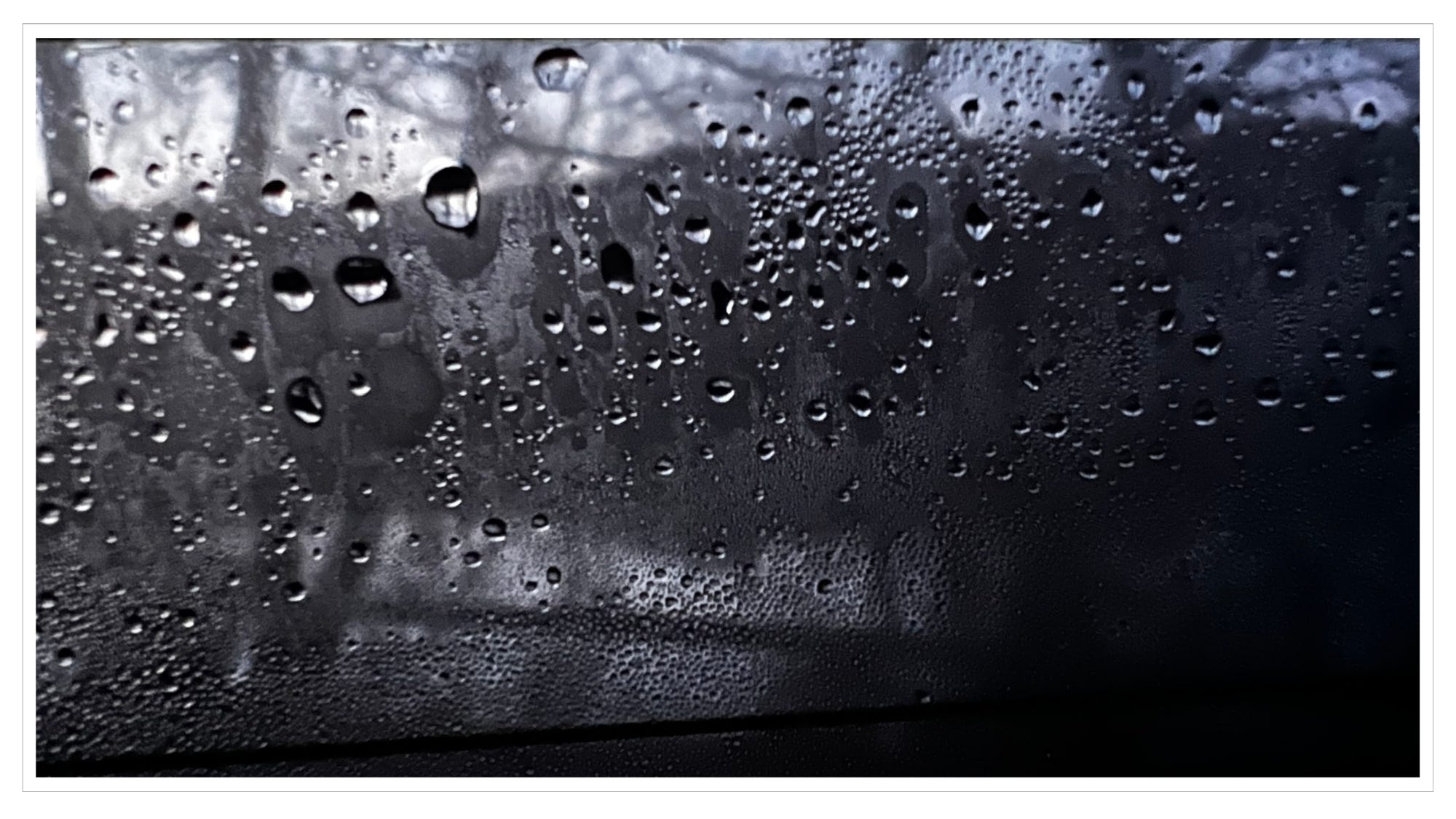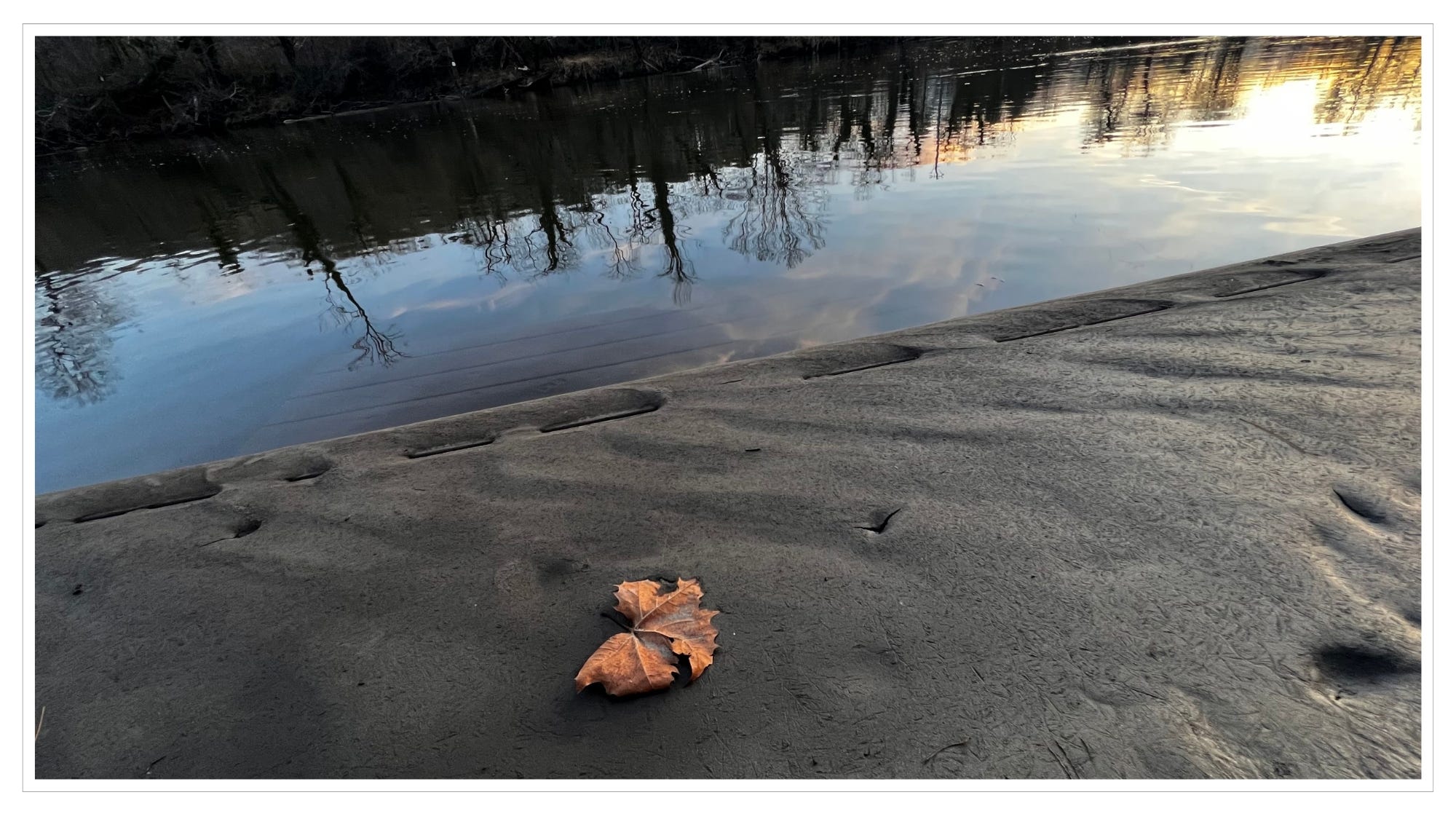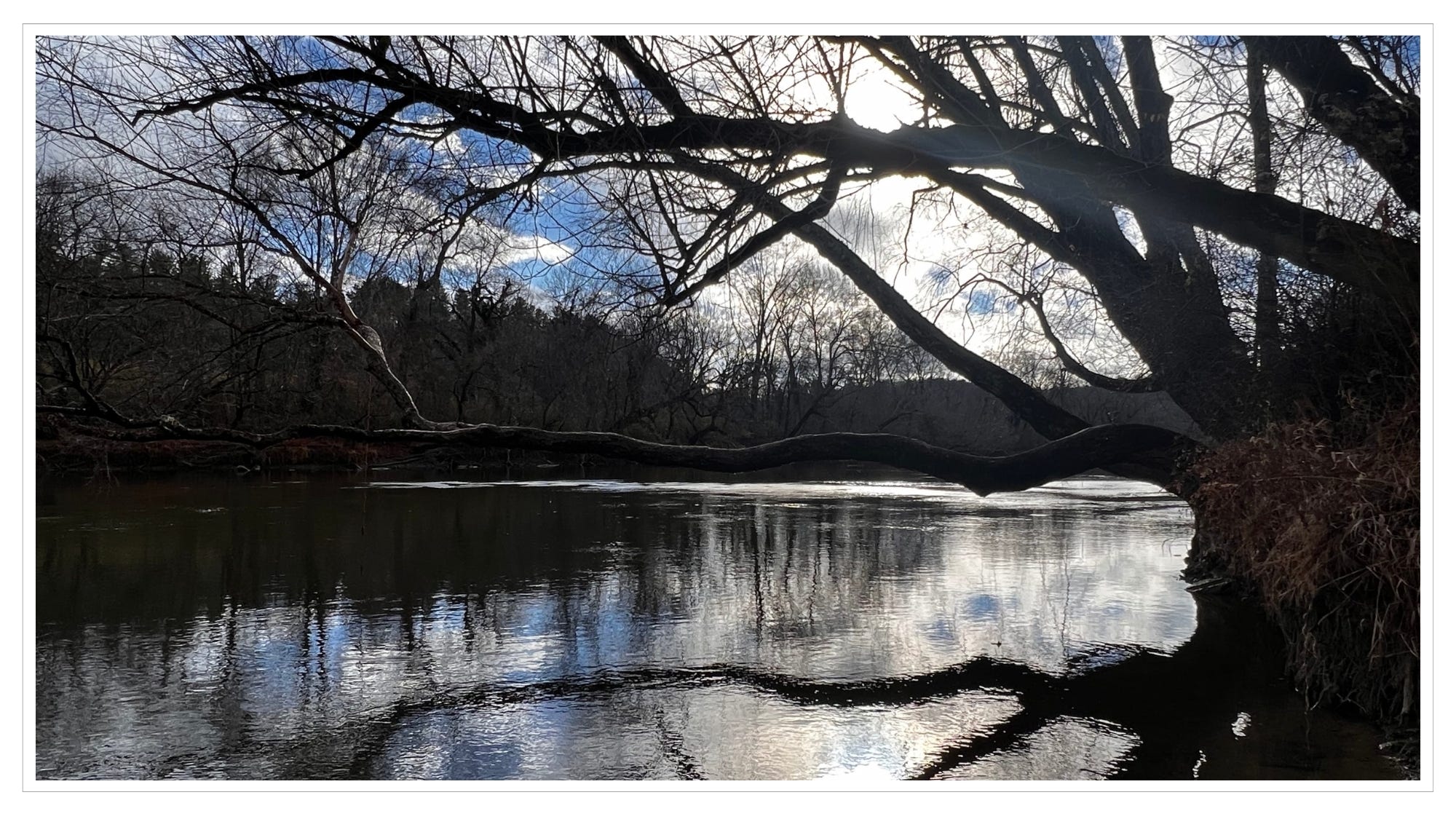Dear Friends and Family,
I’m reversing the order of things today. The reason will be apparent as you read. I’m so glad you’re here. . . .
We must learn to reawaken and keep ourselves awake, not by mechanical aids, but by an infinite expectation of the dawn, which does not forsake us in our soundest sleep.1
The forecast says rain again come Sunday—record rain. The French Broad River has not run clear since the last deluge last weekend and Monday. For three days straight it looked like milk-splashed tea pushing mud for miles and over the outpost dock. When the sun came back, I followed the arc low across the sky, light reaching the solar panels on the van at a slant and for only six, maybe seven, good hours a day. The “house”2 batteries never get a summer charge. Any wisp of cloud or shadow overhead dims the light over the panels. It was not this way in the open dry of desert sky last winter. These are mountains wet with rain.
I do like watching the sun shine slant. And I like that I need it for more than my mood. I need it to power the house. When the sky is grey, things inside must slow down: for every thing in my life powered by the sun, every comfort has a cost.
I went to the woods because I wished to live deliberately, to front only the essential facts of life, and see if I could not learn what it had to teach, and not, when I came to die, discover that I had not lived. I did not wish to live what was not life, living is so dear.3
I walk in the woods with an old friend—he, too, just back from pilgrimage. We talk of Thomas Wolfe and coming home. We say that’s the hard part, landing where you left. You come to something out there. Only you may not know what, and no one near you knows either, and all the while you’re the same and yet not so. And you look at your life—home an image of you—and you wonder. You look at the sudden strangeness in every satisfying and unsatisfying sameness, and it’s no longer clear who lived here before and who lives here now. Maybe it never was, but now you see. You see your self. And in seeing inside, you see an always unfolding. Like a river, you can never be the same. And maybe that’s what changed—you now see through: all that attempt to be the same, to be that person you thought they wanted you to be, made you milk-splashed tea.
We should come home from far, from adventures, and perils, and discoveries every day, with new experience and character.4
It does not matter what the journey is or where to or how long. You can journey at home. It does not mean you’re a hero for going and coming back, for what you did or didn’t do while gone, or that you’re Dante and you came to paradise because you traipsed through hell. All that matters is that you are you—made more real. The real trick is to be more real at home.
I say it’s good to be home. He wonders if it’s too soon to tell. I laugh and say it could be that I’m honeymooning with home. What I don’t say but come to soon after is that some places at home still ache. Once I wished to purge the ache; now that wish is gone.
Every man is tasked to make his life, even in its details, worthy of contemplation of his most elevated and critical hour.5
We reach a clearing, and he shows me a project he finished a while back. His eyes light up when he tells me how he damn near broke his back seeing through every last detail. He belongs to those details. I see his hands in the smooth arc of polished stone. I see his soul in shimmering flecks in the morning sun. There’s no escaping the details. They’re branded in our cells. If we journey—and is life not that?—every mile is about making home with those details. If not, we’re running. We’re running away when the way toward is to walk straight in. The details are doorways.
Well, there I might live, I said; and there I did live, for an hour . . . and a winter life.6
I leave his home and head back to what I’m calling mine for a time. I stop by Ace on Merrimon to pick up a bird feeder and some seed. If genuflection is an outer sign of inner adoration, then feeding wild birds is my bow toward home. It is a way of saying, I am here. And where I am is far from wild now in the sense that I am sandwiched between a river and a freeway on a nearby hill: this spot an outpost for outdoor adventures—the irony is not lost; my winter homing here is intentional. And like the house- and goldfinches that were the first to the feeder after sniffing from a distance for a day, I, too, am fed here now and fat with joy that this is so. This place will be a winter Walden.
I wanted to live deep and suck out the marrow of life, to live so sturdily and Spartan-like as to put to rout all that was not life, to cut a broad swath and shave close, to drive life into a corner, and reduce it to its lowest terms, and if it proved to be mean, why then to get the whole and genuine meanness of it, and publish its meanness to the world; or if it were sublime, to know it by experience, and be able to give a true account of it in my next excursion.7
I ushered Thoreau into the fold today because, while life was ineluctably simpler in his day, he was nonetheless responding to a disillusionment gestalt permeating the times. The Romanticists were coming to an “awakened . . . sense of need for grandeur in the natural world” and life itself.8 Today the stakes are much higher. We live in urgent times. None of us is without inner feeling that this is so. And while I don’t suppose to have the answers, I do sense from the depths of your reflections in our comments of late an inner human yearning to find our way, and together.
It has occurred to me to offer a winter experience course, “Awakening to Wonder.” Why wonder? Wonder is the wellspring of awe. It is the fount of creativity, wonderland of play, and eternal source of hope. It is the birthplace of possibility. In wonder, we are enfolded into the fullness of being, and we are softened, humbled, and wowed at once.
When we awaken to wonder, we give ourselves over to the sublime, the numinous, the grandeur into which we are—by our very birth and every living breath—thrown. We behold the world and our place in it anew. Every moment of wonder is a touch with living is so dear.
The experience of wonder is an intrinsic element of the innocence of a child. It blossoms from the depths of presence. As we age, we lose touch with the naturalness of wonder. But we can return to it and live inside wonder to let it shape the contours of our lives. I have a hunch the sweetness of wonder can help us in these turbulent times. This hunch is not Pollyanna naivete. It points to a way of restoring us to our place of belonging.
I’m fleshing out details on this winter experience course. To help me with the planning, I’d like to get an idea of your interest.
What say ye?
For you who read from email and not on the Substack app, clicking on a response below will usher you over to a webpage to provide an anonymous response. Feel free to send me an email if you prefer: reneeeliphd@gmail.com. I’d very much like to hear from you.
Henry D. Thoreau, Walden; or, Life in the Woods (Boston: Ticknor & Fields, 1854), p. 98.
In an RV van, the driver’s cab is differentiated from the “house” or living quarters of the van. In mine, the house is powered by solar. The exception is the auxillary heat I use where I’m parked now during this winter sojourn, relying on power from an electrical outlet for that.
Ibid.
Ibid., p. 225.
Ibid., p. 98.
Ibid., p. 89
Ibid., p. 99.
Thomas Berry, The Great Work: Our Way into the Future (New York: Bell Tower, 1999), p. 159.












"You see your self. And in seeing inside, you see an always unfolding. Like a river, you can never be the same. And maybe that’s what changed—you now see through: all that attempt to be the same, to be that person you thought they wanted you to be, made you milk-splashed tea." You're talking about the false self here; the one who desperately tries to be loved for what you do, what you say, what you believe in; the one that got so deeply wounded as a child, and did the only thing you could do to avoid rejection and abandonment. God, we get wounded so early in life, and then we spend the rest of it trying to be and live from the true self; the one unwounded and innocent, full of awe and wonder; the one who loves and wants to be loved; the one who gives freely to others in need; the one who experiences "the whole catastrophe"; the one who in truth lives in the world but is not of it. Often I have, and still do on occasion, lament this painful human journey back to where I started: the true self in all its glory. But it seems that this is the human story, and when we do find ourselves living more often from that true self, what a blessing and relief it is. I love the metaphor of the river. That always reminds me of the story of Siddhartha, who goes through the whole catastrophe and ends up living a very simple life of a ferryman who sees everything in the river, especially the truth that it is never the same but always present; it flows no matter what obstructions are in the way; it doesn't resist anything; it knows who it is intrinsically; it has no doubt, only faith in the present moment. Yes, it is possible to live this way more and more; it just takes practice; what else is there to do really? From a poem by Mary Oliver, of course: "I don’t know who God is exactly. But I’ll tell you this.
I was sitting in the river named Clarion, on a water splashed stone and all afternoon I listened to the voices of the river talking. Whenever the water struck a stone it had something to say, and the water itself, and even the mosses trailing under the water. And slowly, very slowly, it became clear to me what they were saying. Said the river I am part of holiness..."
Just flipped open John O’Donohue’s “Eternal Echoes” to where I last read over a month ago. The chapter is titled “Presence”. Here is what was unveiled to me (the first lines I read): “Celebration is an attentive and gracious joy of presence. When you celebrate you are taking time to recognize, to open your eyes and behold in your life the quiet miracles and gifts that seek no attention; yet each day they nourish, shelter, and animate your life. The art of belonging in, with, and to yourself is what gives life and light to your presence; it brings a radiance to your countenance and a poise to your carriage. When your heart is content, your life can always find the path inwards to this deep stillness in you. Rilke said this beautifully: “To be here is so much”.
Ha! -- and, yes, “life is so dear”.